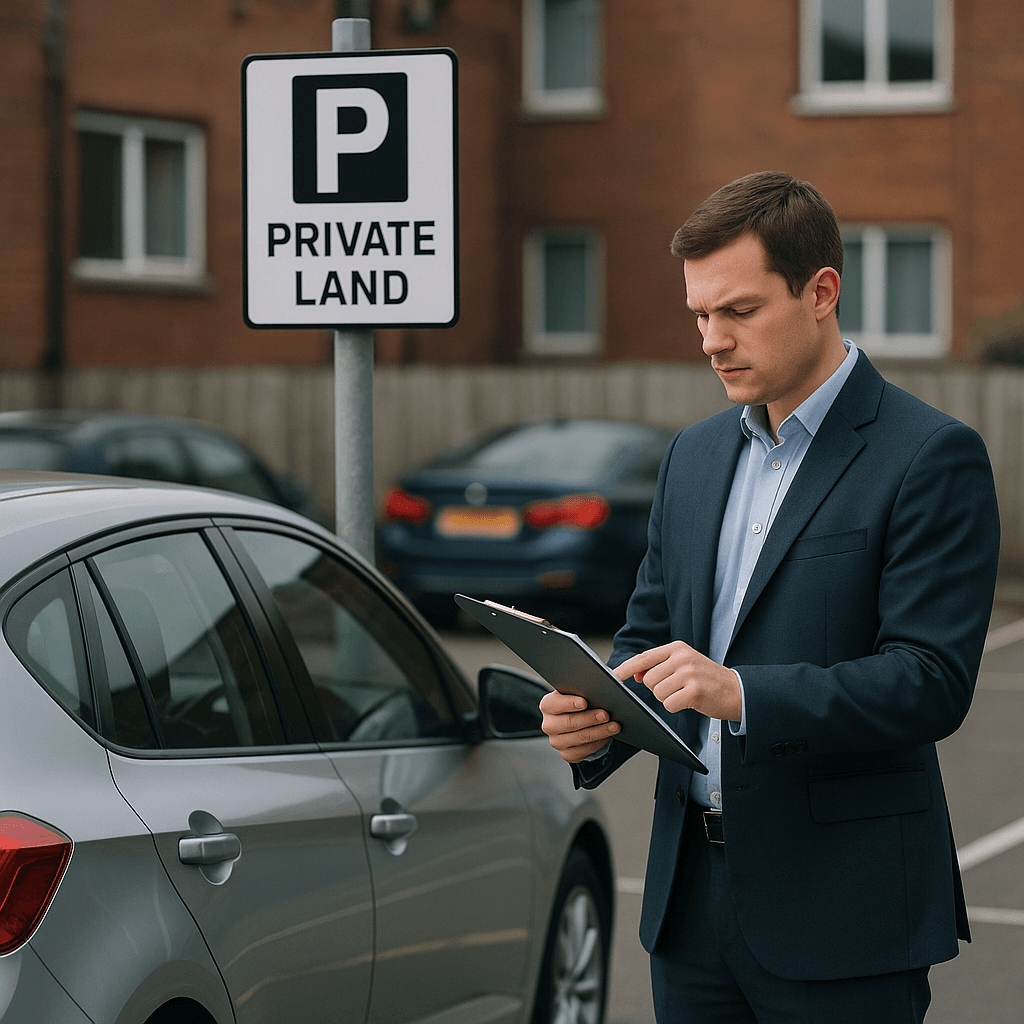
Understanding Your Rights: Parking on Private Land in the UK
Oliver Johansson
•5 min read
Understanding Your Rights: Parking on Private Land in the UK
Parking on private land in the UK can often feel like navigating a legal minefield. Whether you're ducking into a supermarket or visiting a friend in a residential estate, understanding the rules can help you avoid unnecessary fines and frustrations. Let's dive into the nitty-gritty of private land parking in the UK, demystify your rights, and equip you with the knowledge to handle any parking predicament.
The Landscape of Private Land Parking
In the UK, private land includes places like supermarket car parks, shopping centres, residential estates, and even some hospital grounds. Unlike public roads governed by local councils and the Highway Code, private land is generally managed by private parking companies. These companies enforce their own rules, often displayed on signs at the entrance or around the parking area.
Pro Tip: Always read the signs! They outline terms and conditions that apply to that specific parking area.
Know Your Rights
The Legal Framework
The key piece of legislation regulating private parking in the UK is the Protection of Freedoms Act 2012. This act introduced significant changes, including the prohibition of clamping and towing on private land without lawful authority. It also introduced the concept of "keeper liability" through the Parking Charge Notice (PCN).
Parking Charge Notices (PCNs)
Unlike Penalty Charge Notices issued by councils, PCNs on private land are more akin to invoices. These notices are issued when the terms and conditions of the parking area are breached. It's crucial to distinguish that these are not criminal offences but civil matters.
What to Do if You Receive a PCN
- Check the Details: Verify the time, date, and vehicle details on the notice.
- Photographic Evidence: If possible, take photos of your vehicle and any relevant signage.
- Appeal if Necessary: If you believe the PCN was issued unfairly, most companies have an appeal process. Present your evidence and a clear explanation of why you believe the notice should be cancelled.
Pro Tip: If your appeal is rejected, you can escalate it to an independent adjudicator, such as POPLA (Parking on Private Land Appeals) or the Independent Appeals Service (IAS), depending on the parking company.
Navigating Common Mistakes
Parking on private land can be straightforward, but it's easy to make mistakes. Here are some common pitfalls to avoid:
- Ignoring the Signage: Not all car parks have the same rules. Always check for signs indicating maximum stay times, payment requirements, and restricted areas.
- Overstaying: Many private car parks have strict time limits. Set a timer or reminder to avoid overstaying your welcome.
- Failing to Display a Ticket: If a car park requires a ticket, ensure it's clearly displayed. Keep the stub as a record.
What Not to Do
- Ignoring a PCN: While it may be tempting to toss a PCN in the bin, ignoring it can lead to increased charges and potential legal action.
- Providing False Information: Always provide accurate information if you choose to contest a PCN.
Avoiding Disputes
Be Prepared
- Keep Coins Handy: Some car parks may not accept card payments or have malfunctioning machines. Keeping change in your car can save the day.
- Use Parking Apps: Many car parks now offer app-based payments, which can prevent ticketing issues and provide reminders for when your time is running out.
Dispute Resolution
If you find yourself in a dispute, stay calm and gather evidence. Photos of signs, timestamps, and any correspondence can strengthen your case. Keep communications polite and professional.
Example Scenario
Imagine you're visiting a retail park for some weekend shopping. You park your car, but after a lengthy queue at the checkout, you return to find a PCN on your windshield. The notice claims you overstayed by 15 minutes.
Here's how to handle it:
- Photograph the Signage: Capture images of the signs in the car park, especially if the visibility or wording is unclear.
- Keep Your Receipts: If you were shopping, retain your receipts as proof of your visit duration.
- Appeal Promptly: Contact the parking company with your evidence, explaining the situation and requesting a cancellation of the PCN.
Take Action
Parking on private land doesn't have to be a headache. By understanding your rights, knowing the rules, and keeping these tips in mind, you can ensure a hassle-free parking experience.
Next Steps
- Educate Yourself: Familiarise yourself with the signs and terms of any new car parks you use.
- Stay Informed: Changes in legislation and parking management practices can impact your rights and responsibilities.
- Share the Knowledge: Help friends and family navigate the complexities of private land parking by sharing this guide.
Parking on private land in the UK can be straightforward with the right preparation and knowledge. Avoid common mistakes, know your rights, and you'll find yourself cruising through car parks without a hitch. Happy parking!